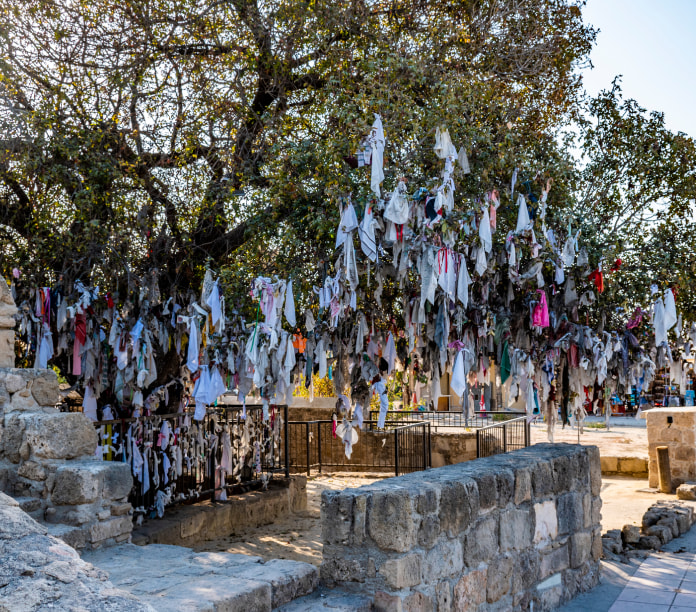4. Cyprus is the form to say copper in Ancient Greek! Well, not so real, Wikipedia says this:
The earliest attested reference to Cyprus is the 15th century BC Mycenaean Greek ????, ku-pi-ri-jo, meaning "Cypriot" (Greek: Κύπριος), written in Linear B syllabic script. The classical Greek form of the name is Κύπρος (Kýpros).
The etymology of the name is unknown. Suggestions include:
a) The Greek word for the Mediterranean cypress tree (Cupressus sempervirens), κυπάρισσος (kypárissos)
b) the Greek name of the henna tree (Lawsonia alba), κύπρος (kýpros)
c) an Eteocypriot word for copper. It has been suggested, for example, that it has roots in the Sumerian word for copper (zubar) or for bronze (kubar), from the large deposits of copper ore found on the island.
Through overseas trade, the island has given its name to the Classical Latin word for copper through the phrase aes Cyprium, "metal of Cyprus", later shortened to Cuprum.
The standard demonym relating to Cyprus or its people or culture is Cypriot. The terms Cypriote and Cyprian (later a personal name) are also used, though less frequently.
The state's official name in Greek literally translates to "Cypriot Republic" in English, but this translation is not used officially; "Republic of Cyprus" is used instead.
Next image is the Skouriotissa copper mine in Cyprus

In Classical Greece, copper was locally called chalkos (χαλκός)
Etymology
Unknown. Has been compared to Proto-Slavic *želězo (“iron”), Latin ferrum, and Hittite (ḫapalki-). Perhaps related to κάλχη (kálkhē, “purple”). Ultimately, Proto-Indo-European origin seems unlikely and the word is probably a borrowing from Pre-Greek.
Cognate to Mycenaean Greek ???? (ka-ka-re-a), ?? (ka-ko, “copper”).







-738x591.jpg)




 sohonee:
sohonee:


